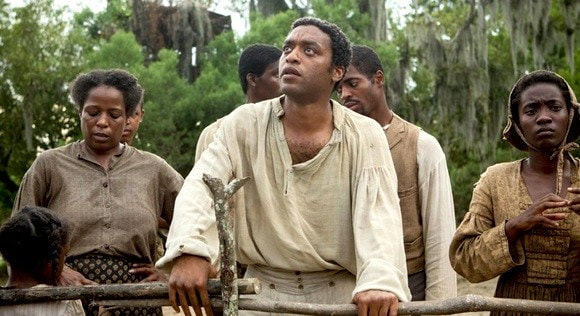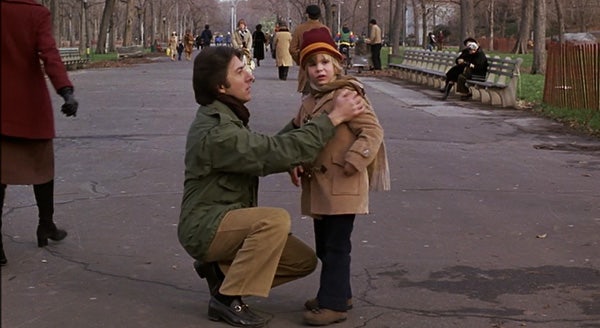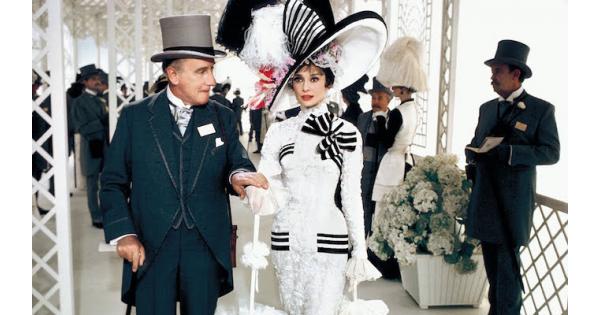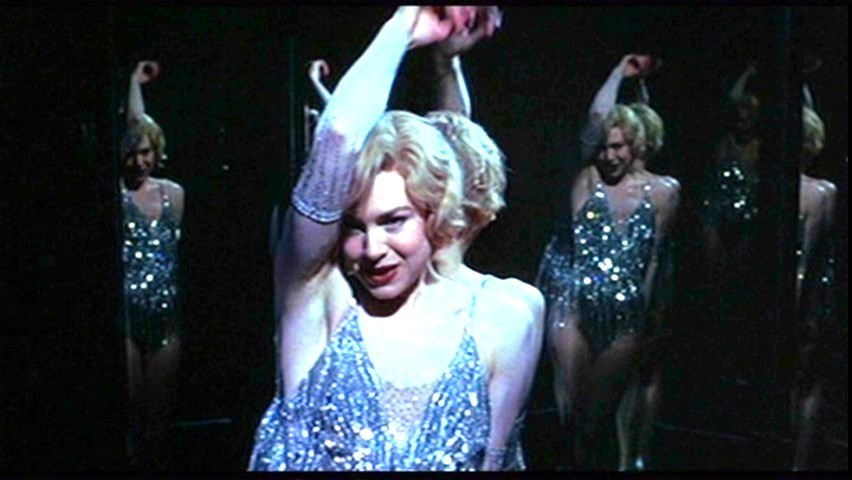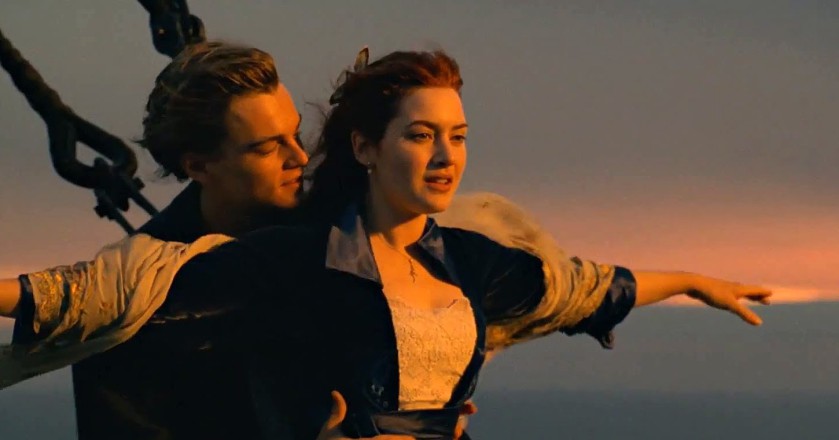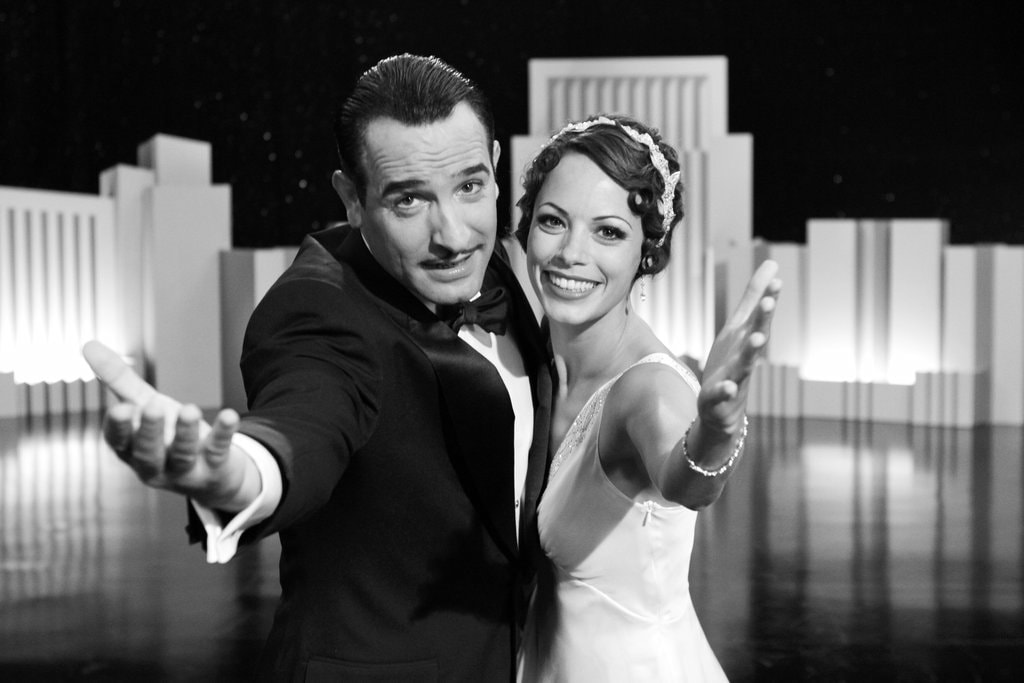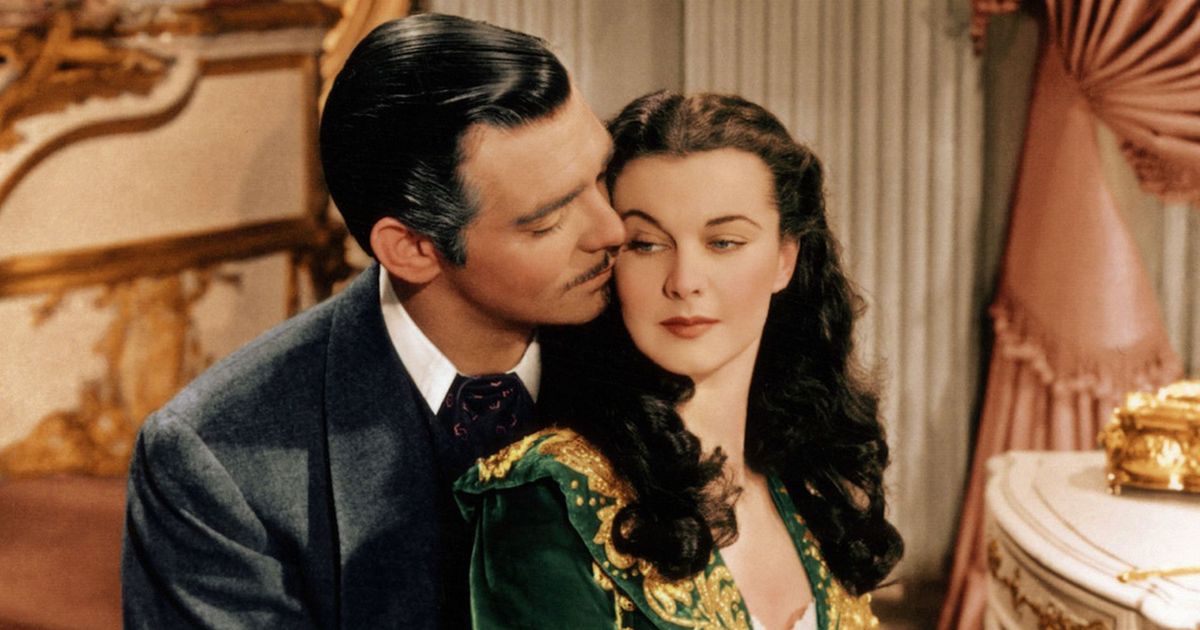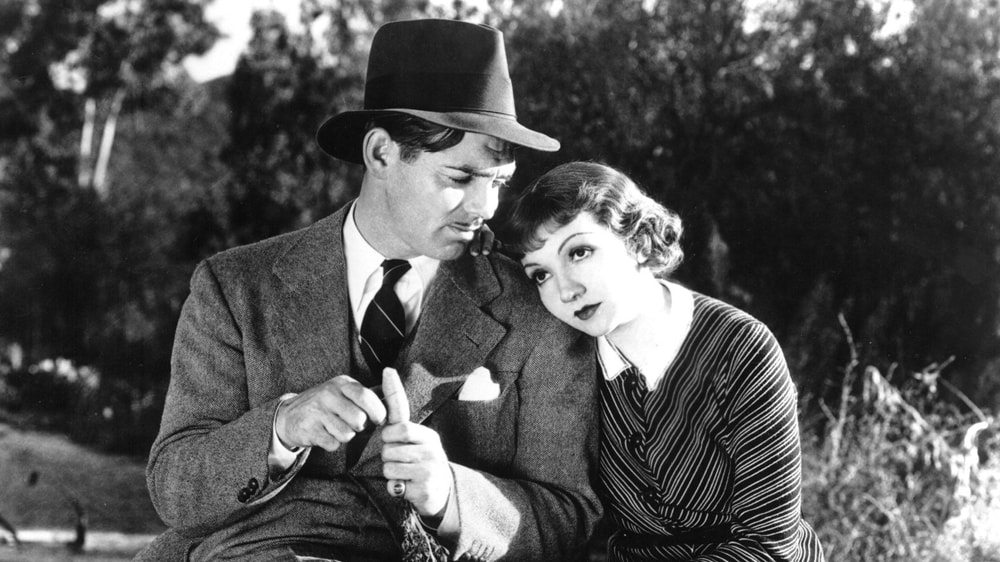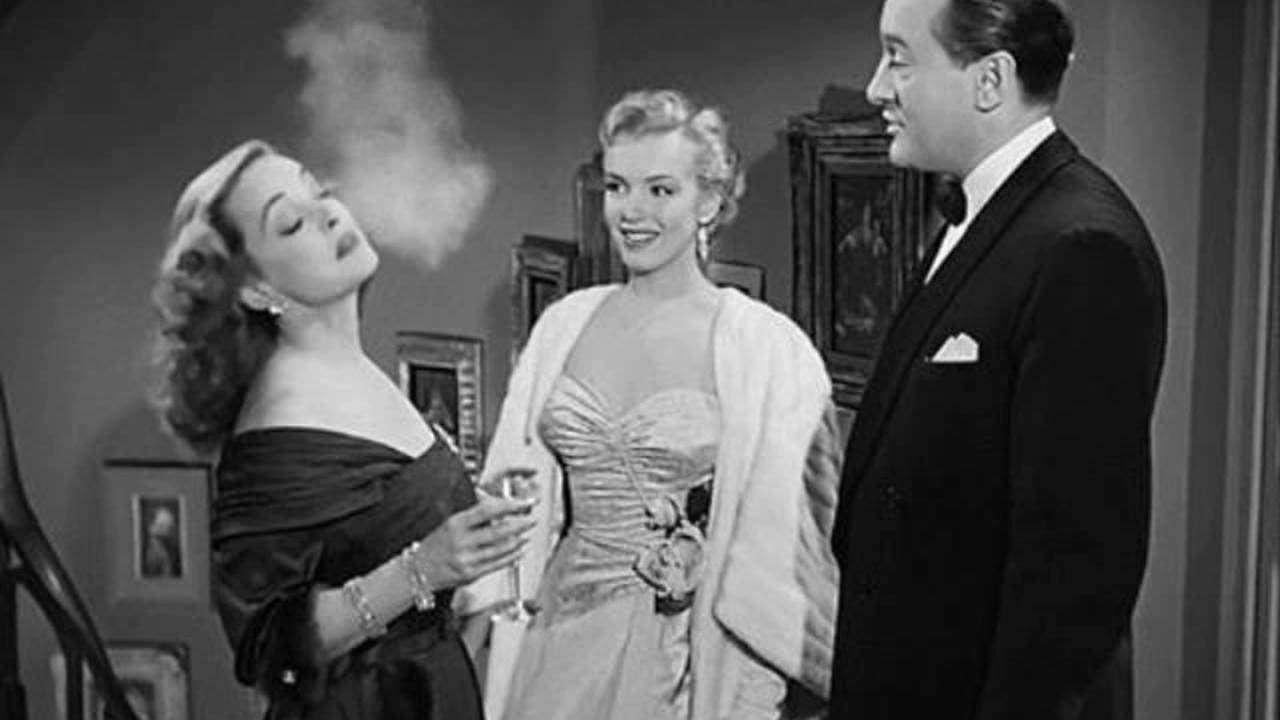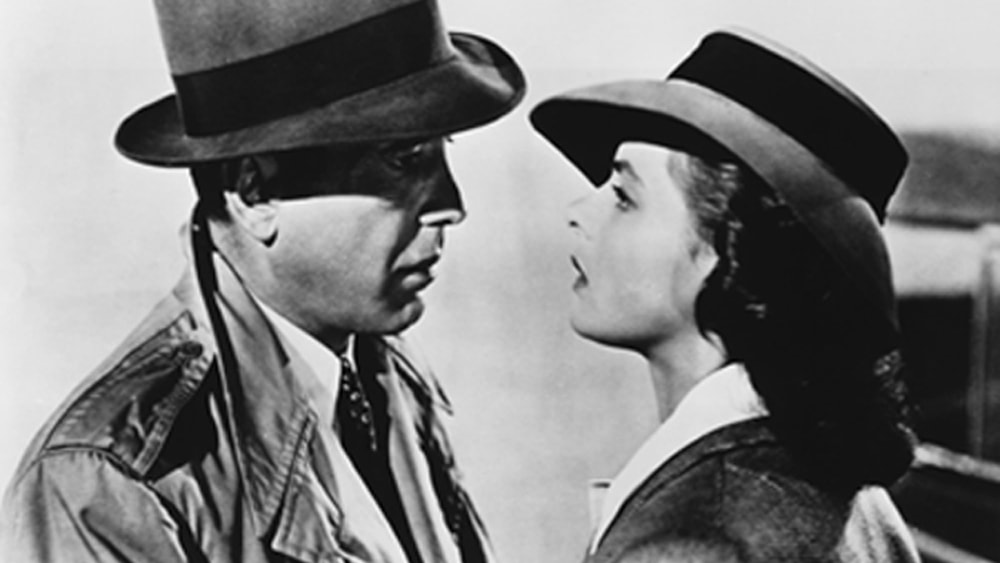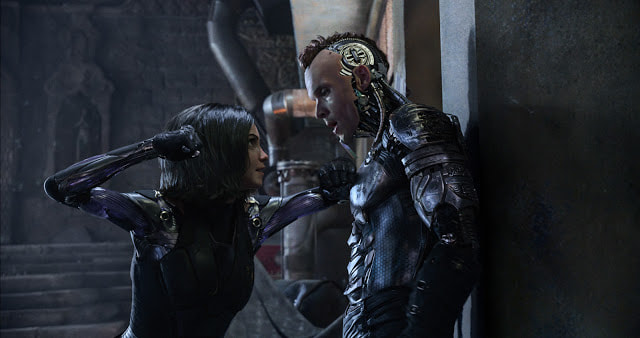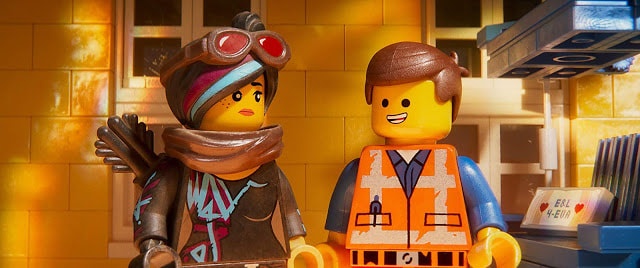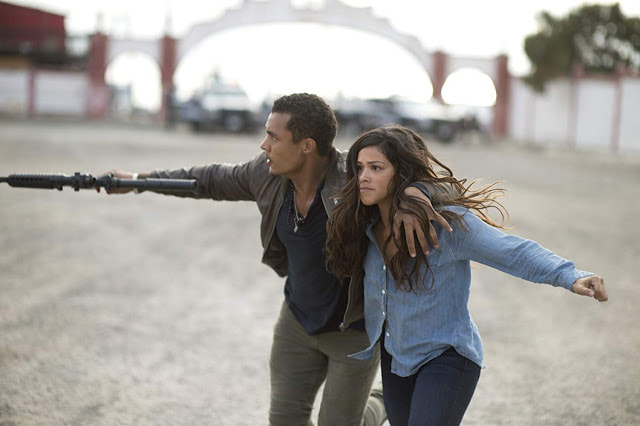|
by Philip Price
This has been something of a whirlwind awards season given not only the tumultuous time the Academy itself has had trying to adapt to the ever-evolving cinematic and social landscape, but also in regard to the fact most of the second-tier awards shows leading up to the big night have put what is, at least for me, the most exciting film of the season on the back-burner. Going into the fall film festival season and then further into the rush of prime awards contenders being released it seemed “A Star is Born” was destined to go all the way and while eight Oscar nominations including one for Best Picture on top of $423 million worldwide on a budget of $36 million ain't too shabby, it was thought “A Star is Born” would be the most heavily favored film of the night, but when Sunday night comes and goes it wouldn't be surprising if Bradley Cooper's directorial debut goes home with only Best Original Song. Why “A Star is Born” went from pre-determined favorite to nearly flaming out completely is anybody's guess and could be attributed to voters disregarding the third re-make of a film to the highlights of other favored winners throughout awards season. It's somewhat depressing considering “A Star is Born” was one of my favorite films of 2018, but it will undoubtedly serve the film well in the years to come as it will be remembered more as a deserving film that got little love rather than an admirable film that received more than it deserved. Of course, the big winner of the night is expected to be Alfonso Cuarón's “Roma” as it garnered 10 nominations and it wouldn't surprise me if it ended up taking home Best Picture, Best Director and Best Foreign Language Film (as predicted below) among others (Cinematography seems to be a lock as well), but given Paweł Pawlikowski's director nod for “Cold War” it's entirely possible “Roma” takes Best Picture and “Cold War” takes Foreign Language. Other than this though, there isn't much by way of drama or uncertainty as to who will be accepting statues Sunday night and thus the reason I've not only included who I think will win in the predictions below, but who I think should win. Best Picture Fortunately, this may end up being the most interesting race of the night. Most Oscar prognosticators have “Roma” taking the top prize, but others still believe “Green Book” has a shot despite director Peter Farrely not receiving a Best Director nomination. Given the actors branch is the biggest in the Academy though, many are still holding their breath that “Black Panther” might take home the biggest award of the night and given it won the SAG award for Best Ensemble there might be a genuine shot for it to win. Why “Black Panther” winning Best Picture is against the odds though, is the fact it has no nominations in any of the other major categories; had Michael B. Jordan maybe got a nod in Best Supporting Actor or if Ryan Coogler had been included in Best Director this might be a completely different story, but given most of its other nominations are largely in technical categories and for Original Song I don't actually see this panning out. While I think “A Star is Born” should win the film that has the best chance of beating “Roma” seems to be Spike Lee's “BlacKkKlansman.” “Roma” did not receive an editing nomination and as most gamblers and Academy Award handicappers have long known most Best Picture winners also score a nomination in this category. Per Variety, since editing became an Oscar category in 1934, only 10 films have won best picture without at least a nomination for editing; the last was 2015's “Birdman” and before that it was 1980’s “Ordinary People.” Of the 66 films that have won Best Picture since 1952, 32 have won the editing statuette as well. On the other hand, “BlacKkKlansman” is the only film among the eight Best Picture nominees to also be nominated for picture, direction, screenplay and editing. It’s also the most socially aware Best Picture nominee, with an urgent message about race and hatred, so it's not crazy and it's definitely not impossible. Best Director One of the biggest snubs of the year was Cooper not getting a nomination in this category, but he likely didn't stand a chance anyway as this is Cuarón's to lose at this point. Cuarón has won all of the top Oscar precursors this year including Best Director awards at the Golden Globes, Critics' Choice Awards (where “Roma” also won Best Picture), and the Directors Guild Awards. The DGA is almost always an indicator for someone’s Oscar chances as, this decade, the only time the DGA didn't align with the Oscars was in 2012 when the Academy infamously snubbed Ben Affleck for “Argo.” Lee has something of a rocky past with the Academy and his lack of wins in the precursor awards don't bode well for his chances here. Honestly, if Cuarón doesn't take home his second Best Directing Oscar this year, it will be one of the biggest surprises of the night. Best Actor You know how I said Cooper was snubbed in the Best Director category this year? One would think that in light of this the Academy would deliver Cooper some kind of recognition for not only writing, directing, producing, starring, and singing in (not to mention writing songs for) one of the best films of last year, but in reality Cooper isn't even in the conversation for Best Actor. For much of the race it was thought Christian Bale had this category all sealed up after winning both the Golden Globe for Best Actor - Comedy or Musical and the Critics' Choice Award for Best Actor, but it's the loss at SAG that puts him at a disadvantage. While it still blows my mind that something as mediocre as “Bohemian Rhapsody” is nominated for Best Picture, Rami Malek's portrayal of Queen frontman Freddie Mercury has more or less already won him this award. The film itself won Best Picture - Drama at the Golden Globes and earned Best Picture nominations from not only the Oscars, but the Producers Guild. Malek picked up several wins this awards season, including Best Actor - Drama at the Golden Globes as well as the SAG award for Best Actor. While Malek was unable to take home a win at the Critics' Choice Awards, his prospects after the SAG win look more than promising given that since 2004, SAG and Oscar Best Actor winners have aligned 13 times. Best Actress Lady Gaga will get hounded time and time again for having played "herself" in “A Star is Born” and therefore not being worthy of such an honor while Glenn Close will receive this year's award as something of a "lifetime achievement" win. Don't get me wrong, I like “The Wife” and Close's performance in particular. The truth is though, that Lady Gaga played the opposite of who she is in the public eye by disregarding her extravagant stage image to portray this humble, down-to-Earth aspiring artist that had more or less given up on herself. Gaga has said many times in many interviews how she was nothing like Ally in this regard and while this may have been just as much an attempt to emphasize how much of a performance this truly was as it is true the fact of the matter is while having been nominated for the Golden Globe, BAFTA, and SAG awards in the Best Actress category, her only big win on the circuit has been a tie at the Critics' Choice Awards. She of course tied with...Glenn Close. Close is essentially the surest bet you can make this year as she's won Best Actress at the Golden Globes, Critics' Choice Awards, and SAG, as well as having been passed multiple times by the Academy making this a long overdue reward. Best Supporting Actor Best Supporting Actor may be the most frustrating category of the night as I could have made a ballot of five actors who each truly deserve this award and would have been happy with any of them winning. This would have been a perfect place to give “Black Panther” another above-the-line nomination for Michael B. Jordan's performance. Brian Tyree Henry also deserved to be here if not for his most prestigious role of the year in “If Beale Street Could Talk,” but for his supporting role in “Widows” (which has shamelessly been ignored this awards season). The man also provided voice work in this year's likely Best Animated Picture winner in “Spider-Man: Into the Spider-Verse.” Either would have been more worthy of the nomination than Sam Rockwell as Rockwell's nod here feels more like a filler than something deserved (and again, I feel like one of the few who advocated for “Vice”). Mahershala Ali was always going to be in the conversation though as this awards season has seen him walk away with Best Supporting Actor wins from the Golden Globes, SAG awards, and the Critics' Choice Awards. If history is on his side-and it seems to be-then Ali will be walking away with his second Oscar in three years. Of course, my pick would be for Sam Elliot to finally grab an Oscar win after this somehow being his first nomination. In addition to winning Best Supporting Actor at the National Board of Review, Elliot received nominations from SAG and Critics' Choice while being snubbed by the Golden Globes. It's a long shot that Elliot gets a "long overdue" Oscar, but that driveway scene alone will have me rooting for him. Best Supporting Actress Amy Adams will continue not to win an Oscar this year (she should have won for "Arrival" even though the Academy failed to nominate her at all) even though this year's Best Supporting Actress category is possibly the most uneventful of the pack. Like Best Actress, this is one of the surest bets of the night as Regina King is more or less a lock to walk away with her first win after her first ever nomination. While King was famously snubbed at the SAG awards at the beginning of awards season she has since gone on to win at the Golden Globes, Critics' Choice Awards, and National Board of Review, a trifecta that very much establishes her as one to beat. Also, her competition just isn't that interesting as two of her fellow nominees (Emma Stone and Rachel Weisz) are in the film that will end up being one of those heavily nominated, but will go home with little to no actual win contenders, Marina De Tavira of “Roma” which was something of a shock considering she'd been absent from awards season prior to this, and then Adams who, while strong in “Vice,” just doesn't have the momentum this year. And while I personally think Henry is a more deserving supporting performance in ‘Beale Street,’ Barry Jenkins' James Baldwin adaptation was one of my favorite films last year and has been severely overlooked this awards season meaning I'm more than supportive of King grabbing it some publicity through her winning streak. Best Animated Feature Film Let's go ahead and take “The Incredibles 2” and “Ralph Breaks the Internet” out of the discussion as neither of those sequels have been a source of awards chatter this season. The other two nominees besides the presumed winner are Wes Anderson's “Isle of Dogs” - a possible winner, but this stop-motion follow-up to his Oscar-nominated “Fantastic Mr. Fox” seems to have come out too early last year to really garner it any kind of awards chances. Also, GKids earned its 11th nomination with “Mirai,” the time-traveling fantasy from Japanese director Mamoru Hosoda that I have unfortunately not been able to see. This is Spider-Man's to lose though for, despite the popularity and success of “Incredibles 2” (with its record $608.5 million domestic gross), ‘Spider-Verse’ has the momentum. It has earned all of the awards acclaim, including the Golden Globe and Producers Guild prizes. Best Documentary Feature The category with the biggest snub of the year as Morgan Neville's superb Mr. Rogers documentary, “Won't You Be My Neighbor?,” was left out of the nominations in favor of “Hale County This Morning,” “This Evening” and “Of Fathers and Sons” - two films I hadn't heard of prior to their nominations. And while it was shocking that ‘Neighbor’ was left out I was even more upset by the fact Three Identical Strangers and Whitney (which admittedly never stood a real shot) were left out of the nominations as both were some of my favorite films of last year. Also, did “The Zen Diaries of Garry Shandling” not qualify as a feature documentary or what? And so, while having only seen three of the five films ultimately nominated this year the best film out of that crop was ‘RBG’ - a chronicling of the life and times of Ruth Badger Ginsberg - despite the fact “Free Solo” possibly giving the film a run for its money. Best Foreign Language Film I haven't seen any other nominees in this category besides “Roma,” so that is where my prediction goes given its strong momentum this awards season, but it's completely possible Paweł Pawlikowski's “Cold War” takes this award if “Roma” does in fact end up winning Best Picture. Best Adapted Screenplay The Academy will likely make up for not giving “BlacKkKlansman” any of the other major awards it was nominated for a win by handing over the Best Adapted Screenplay statue. There is some stiff competition in “A Star is Born” and “If Beale Street Could Talk,” but this is truly Ron Stallworth's moment to shine. Best Original Screenplay “The Favourite” tied with “Roma” for the most nominations this year (ten), but it will likely go home with only one major win (it will also likely take home Best Costume Design and Production Design). As with most of these nominees, I was a general fan of the favored film and found “The Favourite” to be especially well-written if not elevated by its direction from Yorgos Lanthimos. The film is a witty royal-court dramedy based on real historical figures with three excellent lead performances, beautiful set and costume designs, and all the makings of an "Oscar movie", but Paul Schrader’s long-overdue nomination for "First Reformed" is the one I'd like to see walk away with a win, but never will. “First Reformed” was one of the best films of 2018 and was so largely in part due to the conversations held between its characters-difficult, layered, and complex conversations straight from the mind of Schrader. I think “Green Book” is a fine film for what it is, but if it wins in this category I'll be furious. Predictions for Remaining Awards: Best Cinematography: “Roma” Best Costume Design: “The Favourite” Film Editing: “Vice” Makeup and Hairstyling: “Vice” Original Score: “If Beale Street Could Talk” Original Song: “Shallow” (“A Star Is Born”) Production Design: “The Favourite” Sound Editing: “First Man” Sound Mixing: “Bohemian Rhapsody” Visual Effects: “Avengers: Infinity War” The 91st Academy Awards air Sunday night, February 24th at 7 p.m. on ABC. by Tyler Glover 10. 12 Years a Slave “12 Years a Slave” won three Oscars (Picture, Supporting Actress and Adapted Screenplay). The film tells the true story of Solomon Northup, who was a free black man living in the North who was kidnapped and sold into slavery in the southern United States in 1841. He eventually is sold to a horrible owner, played by Michael Fassbender, and befriends a slave named Patsy, portrayed by Oscar winner Lupita Nyong'o. This film is a very difficult to watch masterpiece. I love that this film shows us the brutal torture that African American slaves had to endure but it is a difficult truth of the past. Films like this help us to never forget where we came from and remind us where we never want to go again. 9. Kramer vs. Kramer “Kramer vs. Kramer” won four Academy Awards including Best Actor for Dustin Hoffman and Best Supporting Actress for Meryl Streep. Hoffman plays Ted Kramer, an executive at an advertising agency that is assigned a new exciting project. He comes home to his wife, Joanna, to tell her about it only to find out she has packed her bags and is leaving him and their son, Billy. Weeks go by with Joanna missing in action and Ted and Billy have to learn their new normal together. It begins with some bitterness and resentment but just as they are getting used to their new lives, Joanna returns wanting full custody. Hoffman plays the struggle that this Dad faces so realistically. I watch scenes where he is frustrated at his son because of the stress of work and it hits home to me. Working dads have a lot put on them and patience can be a virtue that you feel you don't have anymore. Hoffman plays out all of this in a way that helps us all to relate and make us not feel alone. That really is what movies and performances by actors do for us. They make us feel not alone. The passion Hoffman has in the courtroom scenes fighting for his son like his life depends on it helps us to feel the love he has for his son. Hoffman's performance is the main reason this film makes this list for me. 8. My Fair Lady The winner of Best Picture in 1964 is our next best of the best: "My Fair Lady." The film stars Audrey Hepburn as Eliza Doolittle, a woman who sells flowers on the street to make a living. One day, she stumbles upon a phonetics professor named Henry Higgins who bets a fellow colleague that he could work with Eliza and pass her off as a duchess at an embassy ball. "My Fair Lady" won eight Oscars and it is not hard to understand why. The production design, the costumes, the music, the performances, and the direction are all magnificent. When I first saw this film, I was around 10-years old and was in love with Hepburn's singing voice. The only problem with this was that it was not hers. I found out that Marni Nixon had actually done the vocals and Hepburn was lip syncing. She still gives an amazing performance but it did take away from the performance a little bit. I love watching films that show us a transformation of someone that may start with something as simple as a makeover but become about something even bigger and "My Fair Lady" is one of the best examples of that type of film. My favorite thing that I learned from this movie though definitely has to be that "the rain in Spain stays mainly in the plain." 7. Chicago The next best of the best is the musical "Chicago." I began following the Oscar race in 2001: the year "A Beautiful Mind" won and beat one of my favorite movies ever, "Moulin Rouge." I was so heartbroken by the loss but the very next year, "Chicago" came out and I was in love. Directed by Rob Marshall, "Chicago" tells the story of Roxie Hart, a woman who kills her lover after learning he is married and not interested in helping her career to excel. He only wanted one thing. After Roxie is arrested, she meets one of her idols in jail, Velma Kelly, who was also arrested for murder. They both share the same lawyer, Billy Flynn, who is famous for never losing a case and uses the media as a way to tell a certain narrative, even if it is not the truth. This film was nominated for 13 Oscars and won six. Renee Zellweger, John C. Reilly, Catherine Zeta-Jones and Queen Latifah were all nominated for their performances. The only exclusion from the main cast was Richard Gere, who played Billy Flynn. All of the music is sensational and has me singing even 17 years later. The highlight of the film is the number: "Cell Block Tango" where all of the inmates sing their story to Roxie explaining to her their reason for being in jail. One of the really ironic parts in the film is the only person seen to be hanged for her crimes is the only innocent one. This film is absolutely fabulous! With show-stopping numbers and a brilliant cast, "Chicago" definitely delivers on all levels. 6. Titanic The next film is what I consider to be this generation's "Gone With The Wind." It is the epitome of an Oscar movie. Beautiful sets, elegant costumes and two performances that would change the course of the careers of Leonardo DiCaprio and Kate Winslet. Reports had been made that "Titanic" was going to be the biggest flop ever and it ended up being a worldwide phenomenon. At the time, it became the highest grossing movie at the box office ever with $1.1 billion in revenue. It tied "All About Eve" with the most Oscar nominations with 14. It also holds the record for the most Oscar wins with 11, a record it holds with "Ben-Hur" and "The Lord of the Rings: Return of the King." It would have beaten the record for most nominations if DiCaprio hadn’t been snubbed. The film tells the story of Rose, who is a wealthy socialite traveling with her mother and fiancee, Cal aboard the RMS Titanic. Aboard the ship, she meets poor boy Jack Dawson who saves her from falling off the ship and she begins to fall in love with him but their romance will soon be tested when the Titanic hits an iceberg and the ship begins to sink. This film is so iconic. The best moment in the film to me is when Rose meets Jack at the front of the boat. She stands in front of him and holds her arms out. He stands behind her and holds her arms and she closes her eyes. Then she opens them up and says, "I'm flying, Jack. I'm flying!" One of the most romantic scenes on film ever. 5. The Artist The next film may have been released in 2011 but it could have been made in 1928. It is a major throwback to old Hollywood films. It’s only the second silent film to win Best Picture after "Wings" prevailed at the very first Oscar ceremony in 1928. At the time of the film coming out, some critics viewed it as a gimmick and nothing more. I completely disagree with this. If it was a gimmick, though, it worked on me. Set between the years of 1927 to 1932, "The Artist" tells the story of George Valentin, a big movie star during the silent era of movies. However, with the rise of the "talkies," George starts to feel his thriving career begin to falter. One of the newest big stars is Peppy Miller, who George made a connection with one night at a movie premiere. George is married but there is an attraction there. After George loses lots of money due to a failed movie project, his wife leaves him and he begins to fall into despair but the movie has a very happy ending that puts a smile on your face. When watching Jean Dujardin and Berenice Bejo in these roles, you would think you are watching a real-life couple. The way they look at each other reminds me of the way I look at my wife. The difference is mine is real life and theirs is pretend. To be able to have that with someone on the screen really shows your gift as an actor to play a part. Make us believe it! In total, "The Artist" won five Oscars: Picture, Director, Actor, Costume Design, and Original Score. 4. Gone with the Wind The next film is what my mind immediately goes to when I think of what an Oscar movie truly is. It is EPIC! It has amazing direction, brilliant performances, beautiful costumes, and an elaborate production design that puts you in the movie. It is set against the backdrop of important moments in history and giving life to those who lived during these moments. When you hear about the number of people who died in the Civil War, you do not think about what a normal day was like for that person and what the new normal for their loved ones will be. Movies like this even if fictionalized help us to imagine what that feels like. "Gone With The Wind" is all of these things. It won 10 Academy Awards and at the time, these wins set the record for the most wins for a film. One thing about this film I love so very much is that one of those wins was for Hattie McDaniel, who became the first African American actor or actress to win an Oscar. She took home the Best Supporting Actress Academy Award. "Gone With The Wind" is set in the southern United States during the Civil War and Reconstruction. It tells the story of Scarlett O'Hara, a very strong-willed daughter of a plantation owner. The film follows her as she pursues a romantic relationship with Ashley Wilkes, who is married to his cousin, Melanie Hamilton. Even though she loves Ashley, she ends up settling to marry Rhett Butler. The biggest standout in this whole film is the performance of Vivien Leigh who plays Scarlett. She plays her with such passion and electricity. When she is on the screen, it is difficult to look away. 3. It Happened One Night “It Happened One Night” is one of the few romantic comedies to claim Hollywood's top prize. This film was the first movie to win Best Picture, Director, Actor, Actress and Screenplay also known as the "Big Five." Only two other films have accomplished this feat: "One Flew Over The Cuckoo's Nest" and "Silence of the Lambs." "It Happened One Night" tells the story of a spoiled rich girl named Ellen who has married a man her father disapproves of behind his back. Her father wants to have the marriage annulled because he believes her new husband is only interested in their money. Ellen runs away from home and boards a bus to reunite with her husband in New York. Along the way, she meets Peter who is a recently fired newspaper reporter. Peter realizes who Ellen is and gives her a choice: If she will give him an exclusive on her story, he will help her reunite with her husband. If not, he will tell her father where she is. Along this trip, Ellen and Peter begin to fall in love. This film is one of the most charming movies I have ever watched and very deserving of the Big Five Oscars. The screenplay is filled with witty banter that makes me laugh hysterically. The performances of Clark Gable and Claudette Colbert are nothing short of spectacular. It may have only happened one night, but once you watch this movie, you will want to make this movie one to watch many nights in the future. 2. All About Eve “All About Eve” is just absolute perfection. It’s the most nominated film in Oscar history with 14 nominations, a record it holds with "Titanic" and "La La Land." It is a story centered around fame, the pursuit of it and retaining it once you get it. Bette Davis, in a role that should have won her the Best Actress Oscar, plays a famous but aging Broadway actress named Margo Channing. One night after one of her shows, she is introduced by her friend, Karen, to a fan named Eve Harrington. Eve has followed Margo's career and upon learning that Eve's husband died in World War II, Margo decides to take Eve in as an assistant. Margo is unaware that Eve is planning on using Margo to advance her own career as an actress. Over time, we learn Eve is a very manipulative and devious woman who will do anything for fame regardless of who she hurts in the process. The acting in this film is phenomenal. Four of the actresses in this film were nominated and George Sanders won Best Supporting Actor for his portrayal of Addison DeWitt, the theatre critic who becomes aware of Eve's manipulations. The two brightest spots though are Bette Davis as Margo Channing and Anne Baxter as Eve Harrington. Davis plays Margo with such a sophisticated charm. The way Davis holds a cigarette and walks around the room as if she owns it helps us see who Margo is and how she plays the part. We also see the more vulnerable and more fragile state of Margo when she is behind closed doors. One of the reasons I love this movie is because it shows how even we can play a part and act when we are in public that does not represent the person we truly are. Speaking of that, at the beginning of the film, Baxter plays Eve in a way that draws you in to her every word. You believe her story and you feel bad for Eve's misfortune, which makes it even more surprising when Eve flips the script. Baxter shocks you with the person Eve truly is because she has done such a good job playing pretend. For a movie about actors, there is definitely a lot of acting going on when the curtain is closed. With the issue of fame, the movie addresses how fame is something that continues on and continues to pass down. Margo was big, Eve becomes big, and then a fan at the end of the film breaks into Eve's house idealizing her in the way Eve idealized Margo. There are simply not enough words to explain the magnificent "All About Eve." If you ever get the chance to see it, just make sure to "fasten your seatbelts. It's going to be a bumpy night." 1. Casablanca To find the best of the best, one has to go all the way back to the 16th Oscar ceremony when "Casablanca" claimed the prize. The winner of three Academy Awards tells the story of Rick, an American who owns an upscale nightclub in the Morrocan city in 1941. During World War II, Casablanca was a place of refuge for those who were escaping the Nazis. Rick comes into possession of papers that would allow the holder to travel freely across Europe, even the areas occupied by the Germans. Rick becomes faced with a dilemma. Should he give the papers to the love of his life and her Czech Resistance leader husband so they can continue his cause in helping to defeat the Germans? Or should he allow her husband, Laszlo, to be arrested freeing up a reconciliation to his wife, Ilsa? The acting in this film is top notch. You can feel the pain that Humphrey Bogart's Rick feels by not being with his beloved. You can feel Ilsa's pain and regret with the whole situation. She believed her husband to be dead when she began a romance with Rick. One particular thing I love about this movie is the song "As Time Goes By." We all have those songs that connect us to people in life whether it be friends, family, or significant others. This song is Rick and Ilsa's song. "As Time Goes By" in this film is how "Teardrops On My Guitar" by Taylor Swift makes me feel today at a lost romance. I found happiness with someone else but every time I hear that song, I feel the heartbreak the same way Rick does when he tells his pianist, Sam, to stop playing it. Humphrey Bogart and Ingrid Bregman portray my absolute favorite couple in all film history. They have an amazing chemistry together. The way they look at each other really sells the story. When you see films where you really cannot believe that the actors are really a couple, it makes you really appreciate performances like this. These are actors doing a job but when watching this film, they are Rick and Ilsa, two former lovers who still long for each other. Another thing I love about "Casablanca" is the amazing script. "Casablanca" arguably has the most quotable lines from any movie in film history. The most memorable lines to me are: "Here's looking at you, kid." "We'll always have Paris." "Of all the gin joints in all the towns in all the world, she walks into mine." "Play it, Sam. Play 'As Time Goes By." "Louie, I think this is the beginning of a beautiful relationship." "Casablanca" is simply the best of the best. One of my favorite things about movies is when people are put into real world events and we see how it affects people individually. When you hear about the topic of World War II, most of the time you hear about how many people died but you don't think about a mother who had to deal with burying her son for example. In this film, Rick and Ilsa would have ended up together more than likely if it wasn't for the war. Rick decides to let her go so Laszlo can finish working for the cause because Rick believes Laszlo would be distracted by his loss and hurt his cause. It ends with Rick watching her plane fly away and the nail being put into the coffin for their romance. With the best couple a film has ever had and a story of loss that still resonates 75 years later, "Casablanca" is THE best Best Picture Oscar recipient.
by Philip Price Director: Robert Rodriguez Starring: Rosa Salazar, Christoph Waltz & Jennifer Connelly Rated: PG-13 Runtime: 2 hours & 2 minutes Though a fan of science fiction I'm not familiar with Yukito Kishiro's 1990 manga comic Battle Angel Alita that inspired the latest Robert Rodriguez picture as produced by James Cameron. I'll clarify that I truly enjoy science fiction largely for the genre's ability, whether it be in the writing or when translated to the big screen-the concept artist, director, or costume and set designers-ability to create a new environment and/or new world's altogether. Further, to apply a structure to this environment where an advanced, and if not advanced at least futuristic society, exists where the world follows the rules of this implemented structure is inherently fascinating as it undoubtedly takes cues from our present world and applies what the creator might think will be to the human races benefit or ultimate detriment. Such prophecies within the genre over the years have created an amalgam of tropes, motifs and clichés, but while the dystopian future has been a familiar trend over the last few years especially it does well to establish a compelling backdrop or habitat, if you will, for the kind of people we come to know in “Alita: Battle Angel.” Cameron, Rodriguez, and Laeta Kalogridis's screenplay shows early on that it has the aforementioned innate ability and, more importantly, a strong desire to construct a world centuries ahead of our present time that is not only inventive, but feels fully realized and lived-in. What the screenplay doesn't do and arguably fails to do is follow through on the promises of this world in which it builds. Meaning, that while it's not automatically a negative to utilize familiar sci-fi and action tropes there does need to be a unique take on whatever traits your movie or story might be adopting from the genre and there are certainly flashes of as much in ‘Alita,’ but most of it comes from the investment in our main character rather than any kind of investment in the beats she is following. You want to know more about the character, you want to live alongside them because this world that has been created feels so alive and so layered and so interesting, but it's almost as if you also wouldn't mind checking in on and seeing what other characters are up to because as much as we like Alita, there isn't really much depth or surprise to the video-game structured script that is pitting her against the ultimate final boss in the sky.
To lend better perspective to both this world and story would be to set-up the premise of the film stating that the film begins five hundred-plus years in the future in this aforementioned dystopian society. There was a massive war referred to as "The Fall" that happened some three hundred years prior that has left earth as a planet of middle to lower class individuals who are constantly under the scrutiny of those who prosper on this city that floats above them in the sky, Zalem, and is run by a mysterious figure known only as Nova. Down on earth though, Dr. Dyson Ido (Christoph Waltz) serves to help the people of his community in Iron City as the majority of the residents are part-cyborg and therefore require tune-ups and repairs from time to time-all of which Dr. Ido is proficient in. There is no real explanation as to why everyone in town has at least one robotic appendage, but it's a futuristic world, so we'll take the movie's word for it that for whatever reason these new accessories are necessary. In his spare time though, Dr. Ido scavenges through junkyards that are compiled of the trash that is dropped from Zalem. In the film's opening moments though, Dr. Ido comes upon a disembodied female cyborg with a fully intact human brain. Dr. Ido rebuilds the cyborg, who does not have any recollections of her past, eventually giving her the name "Alita" which, as you can probably guess (and by guess, I mean know exactly what the connection is), has a significant connection to Dr. Ido's past. After waking up, Alita (a performance-captured Rosa Salazar) is eager to learn about the world around her quickly initiating friendships with people like Hugo (Keean Johnson) whom we see she immediately has something akin to affection for while making enemies out of full-on cyborgs like Zapan (Ed Skrein) and Grewishka (Jackie Earle Haley). And so begins Alita's journey to figure out who she was, where she came from, and what her capabilities are that will inevitably connect to Nova and Zalem and all that good stuff, but it is within this journey that the script introduces what seems to be this world's only source of entertainment in what is called "Motorball" (like if you set roller derby inside the world of Battle Royale) which is naturally controlled by an entrepreneur working under Nova a la Vector (Mahershala Ali) who may or may not also have a weird sexual pact with Ido's ex-wife, Chiren (Jennifer Connelly), who is also a doctor and intent on getting back to Zalem, but can't help but to do the right thing. It is when these elements are introduced that Alita begins to lose focus. Unfortunately, the addition of these expanded threads in the film make it feel as if the majority of the story and most of the function of the plotting is to serve as this kind of prologue for what is to come. Obviously, Kishiro has written several different volumes in this series (nine!) and while it wouldn't be surprising to find out Cameron and Kalogridis pulled story ideas from more than one of those (two!) Alita more or less sets up a handful of plot strands for the sequel to follow-up on while exploring more than a few facets of the world for (hopeful) sequels to follow-up on as well. And while not opposed to a first movie knowing that it wants to be a part of a franchise, movies still need to tell a complete story in and of themselves separate from whatever might follow them sequentially, movies still need to be a first book and not just a first chapter and Alita definitely feels like a first chapter. This becomes all the more apparent and in turn all the more irritating given that by the end of the film there is no satisfying resolution to the conflict this movie has set-up...and this movie is not short. Rodriguez and Cameron could have very easily removed Ali's character altogether (he's largely wasted here anyway) or simply made Ali the Nova character and easily told more of a complete story given the arc of Alita's character is for her to go on this complete 360 from innocence to experience in the discovery of who she was and now is. In doing so, the filmmakers could have shaved off a good fifteen minutes and streamlined the story to feel less scattered while still being sprawling. Rather, the script is more intent on letting the audience know what is to come rather than reeling them in with what is happening which has been left up solely to the visuals, the world-building, and some of the performances. The problem with putting all of one's eggs into the basket of franchise building is convincing the audience they do in fact want more. Unfortunately, Cameron writes and Rodriguez directs like they know exactly what they want and therefore the movie comes off as if it knows exactly what it's doing-there is a real sense assuredness to the property-and yet it can't help but to struggles to get the audience to invest in this journey due simply to the fact the ambition of the storytelling isn't on par with the ambition of everything else on screen. Within the construction of this future society, the script fails to create something inspiring or enrapturing through this template that we've seen other movies do better and more interesting things through and around. What elevates the material and makes up for this lack of storytelling ambition is the central performance of Salazar though, who brings a joy, wonder, and wide-eyed innocence to Alita that wasn't necessarily expected. Based on the title alone one might think this character to be a hardened soldier with some kind of amnesia along the lines of Jason Bourne who is stoic and trying to piece together the past so as to eventually find whoever disregarded him in the first place, but in waking up to the scenario of the caring Dr. Ido who provides this warm and caring environment that juxtaposes the rest of Iron City allows for Alita, who is a blank slate at the beginning of the movie, to react respond with this very curious and pleasant personality. Alita wants to learn, she wants to interact and engage, and is interested in all of these different facets that Dr. Ido and Hugo introduce her to. And though this is a performance capture performance it is absolutely a genuine performance that could not have been created in a computer without Salazar both literally and figuratively going through these motions to give the animators what they need to create the most photo-realistic character to ever grace the screen; it never feeling as if Alita's not truly interacting with the people or places around her. Despite the shortcomings of the plot overall, the film does do really well to make the titular character the heart of the film. This is something Rodriguez has always excelled at and more so than Cameron as of late as both filmmakers are innovators in their own right, but Rodriguez has always tried more to challenge the traditional format of cinema while Cameron is keen on pushing the technological boundaries; Rodriguez the more whimsical and Cameron the more analytical, this mixing and blending of styles does well to create this unexpected balance of solid science fiction with strong fantastical elements all of which reflect strongest in the performance of Salazar, the appeal of the main character, and the environments they've built. Waltz is also strong here even if he isn't necessarily stretching his acting chops too much and while wanting to like the Hugo character his and Alita's journey together still feels like something out of nineties teen melodrama. Johnson isn't a bad actor, but his presence doesn't feel congruent with this world. It also doesn't help that Hugo and Alita's relationship moves too quickly, especially with where the film ultimately goes and how it so easily takes for granted the ramifications of said relationship. This appeal of the central character counts for a lot though, and when paired with the visual scope of what has been accomplished here it's difficult not to forgive many of the shortcomings. The action scenes in particular are very hard-hitting for a PG-13 film, but they are also very clean, well-staged, and clearly filmed in a way that the audience feels they can experience the full breadth of the situations and are not just being thrown to the wolves and being forced to put together who is where and what is happening. No, Rodriguez is very deliberate with his action and while the motorball stuff may lean a little too heavily into the reliable world of CGI the majority of the film is a grounded mesh of practical sets and stunts along with the abundance of unbelievable special effects-the greatest of which is Alita herself. And so, while this first ‘Alita’ (and I genuinely hope there are more of these) is not a bad movie by any stretch of the imagination it does still takes some bad ideas and run with them. Fortunately, there is enough to like and enjoy here to warrant more as well as taking into consideration the admission that there is more to tell paired with the audience knowing there is a better, fuller story to be told within the confines of this world and with these characters. by Philip Price Director: Mike Mitchell Starring: Chris Pratt, Elizabeth Banks & Will Arnett Rated: 1 hour & 46 minutes Runtime: PG It was a given “The LEGO Movie” would eventually get a sequel, but it's kind of crazy it took five years for that sequel to actually happen. That said, Warner Bros. has certainly expanded the LEGO brand by giving LEGO Batman his own feature as well as delivering their only misstep thus far, “The LEGO Ninjago Movie.” And while there was some trepidation going into this delayed, but inevitable sequel given original directors Phil Lord and Chris Miller were no longer at the helm there was some hope given it was still their minds that conjured up the screenplay. Thankfully, “Trolls” director Mike Mitchell was brought on board and has successfully converted Lord and Miller's screenplay into a sequel that keeps things in step with if not necessarily surpassing the original. Of course, given the precedent set for the original and what it turned out to be versus the raised bar for the sequel and what it has turned out to be-that's a solid accomplishment and a resounding endorsement. That is to say, upon initially hearing there was going to be a movie based solely around the LEGO brand and the toys and properties they owned it seemed obvious the eventual movie would turn out to be little more than a cash grab; nothing more than one big commercial, if you will. To expect this was ultimately foolish given the creative team behind it as Lord and Miller delivered a witty, colorful, and (per usual) meta piece of cinema that took some unexpected themes and conveyed them in a manner that allowed the children to enjoy the toys coming to life while the adults latched onto those ever fleeting moments of innocence that come with raising children and attaching certain memories to their playthings. “The LEGO Movie” intentionally evaded everything audiences expected it to be, disrupting the status quo and turning heads, but how was something so inventive and appropriately rowdy supposed to then follow itself up with something as conventional as a sequel? Especially given the abstract qualities of the first and having to continue the same narrative while holding tight to the themes the first film so perfectly encapsulated? It turns out, the trick is to lean into such things even further; deliver the same goods in a different package and through different techniques. And though “The LEGO Movie 2: The Second Part” might feel redundant in certain ideas, the ideas it's pedaling never don't need to be heard...especially when they're this creatively catchy.
Speaking of the screenplay, things have only gotten worse after the events of the first film with Chris Pratt's Emmett being in denial about the ramifications of everything that has recently occurred. Prompting new conflict though, is not the return of President Business, but the arrival of LEGO DUPLO® invaders from outer space, wrecking everything faster than they can rebuild. In terms of how to continue to expand this universe while using the stable of toys they have to work with to their greatest advantage, this is a solid idea, but it is what Lord and Miller do with the already established framing device that allows for this continuation of the narrative to once again yield not only fun and entertaining results, but emotionally moving ones as well. In the film, Emmett and Wyldstyle AKA Lucy (Elizabeth Banks) are dealing with the fallout of this invasion that has been going on for some five years now as Emmett continues to be cheery and optimistic while Lucy prefers to be more brooding and "mature". Bricksburg has morphed into what has been re-branded as "Apocalypseburg" with the fact Emmett is unable to see that things won't be going back to being awesome being the crux of the issues that begin to show cracks in the relationship between him and Lucy. Things go from bad to worse when General Mayhem (Stephanie Beatriz) shows up with the intent of bringing back a suitor for Queen Watevra Wa'Nabi (Tiffany Haddish) of the Systar System to wed so as to accomplish what is presumed to be a nefarious plot. Thanks to the naiveté and general gullibility of Emmett though, Mayhem is able to get away with Lucy, Batman (Will Arnett), Benny the Space Man (Charlie Day) MetalBeard (Nick Offerman), and Unikitty (Alison Brie) leaving Emmett to have to own up to his mistake and grow out of his perceived lack of awareness and become a grittier, cooler, darker version of himself that isn't afraid to embrace the cynical side of life. Lucky for Emmett, on his venture out of Apocalypseburg and into the Systar System he stumbles across Rex Dangervest (also Pratt but sounding suspiciously like Chris Pratt doing a Kurt Russell impression) who is a fearless and brave LEGO action figure that is not only a cool space pilot, but an archeologist, cowboy, and raptor trainer (wink, wink). Upon arriving in the Systar System though, Emmett learns that much more is at stake than just the safety of his friends as something called the "Momageddon" looms near. In regard to the aforementioned framing device, Lord and Miller use this device to once again traverse the film's emotional territory. What differs slightly this time around though, is the emotional terrain covered as the film dissects the transition from innocence to experience and the lack of fun that seemingly has to come with growing-up. In essence, Lord and Miller are encouraging the idea of both maintaining one’s sense of youth and wonder while suggesting the bigger issue is not remaining youthfully optimistic but closing off that part of ourselves that is our youth and wonder and not sharing it with those around you-a youth and wonder that is derived from playing with LEGOs, mind you. If you're a keen adult viewer in the slightest it's not difficult to pick up on the clues being laid out by the character names and environments that suggest how each might fit into this world designed by the kids playing with them. “The LEGO Movie 2” is somewhat spoofing the idea that to mature automatically means one has to be more serious and less fun-which falls perfectly in line for the sequel to also spoof this idea as it pertains to sequels and the second chapter always being a little darker and a little grittier-with all of this culminating in the revelation that changing for the better is in fact more beneficial than changing for the tougher. The film isn't discounting maturity, mind you, but is advocating for allowing one's self to look at things from a different perspective as even inherently bad situations might become more bearable if approached with more optimism and joy rather than worse. The message is simple: spread kindness, not hate. Open your heart, don't harden it. Know that while everything might not be awesome all of the time that this doesn't relegate everything to being hopeless either. It's in the execution of these simple, but effective reminders as expressed through the relationship of Finn (Jadon Sand) and younger sister Bianca (Brooklynn Prince) that the film really hammers home the fact that lightning is kind of striking twice and giving way for a movie about toy bricks to resonate deeply. It might seem that it's now impossible for any movie made about toys to find itself not discussing anything other than the eventual loss of innocence by those who find the most joy in them, but as the broad strokes of the film boil down to learning to play together, constructively, it also seems Lord and Miller delve into a whole new realm of meta-commentary. As the toys themselves reflect the characteristics of the age of the kids who are playing with them the themes of the story become questionable as to what exactly Lord and Miller are chasing exactly. Given the number of tropes and pop culture references spoofed here, it would seem the writers were keen on discussing how a culture consumed by intimidating levels of content have culminated with new generation's imaginations having also been consumed by the conventions of these movies and TV shows to the point their minds no longer know how to do anything other than imitate as much. In going this meta one wonders whether or not Lord and Miller thought this analogy of sorts through or if they simply could walk it off by tying it back to the themes of growing past certain things while embracing certain aspects of other things-whether it be our childhoods or our movie and TV clichés-so as to continually strive for the best but keep our expectations in check. It's difficult to say given the conclusion of the film only seems to restate the "open your heart, don't harden it" thesis rather than acknowledging much in the way of how they might suggest we begin to change or at least evolve these conventions they've become so adept at lampooning. It's nice to acknowledge all these familiarities and poke fun at them, but it will be interesting to see how-as these tropes do begin to adjust and evolve-how Lord and Miller do so with them. Coming back out of that wormhole though, and taking “The LEGO Movie 2” for what it's worth based on face value alone is to reiterate that it is a ton of fun that has no right being as good or ambitious as it ends up being. Yes, the themes and meta-commentaries are great and add layers upon layers of ideas for young viewers to dig through and better comprehend as they grow-up (hopefully) re-watching these films, but beyond that they are fulfilling on a basic level as well; engineered for any engagement level. The Lonely Island guys are back with Robyn for a ditty just as catchy and maybe twice as funny as "Everything is Awesome" (stay through the credits, seriously...not for what comes after them, but for the credits themselves) while the likes of Haddish, Beck, and T-Pain perform original songs within the context of the film ("Oh no, are we in a musical?") each of which do well to stick in your head, progress the story, and be genuinely funny. Further, Mark Mothersbaugh's score is as much a play on the orchestral scores of big tentpole, franchise films as the script is on the previously discussed conventions of these genres. The animation is stunning (as always, see it on an IMAX or Liemax screen if playing on one near you) as the detail of the scratches and scuff marks on each of the pieces in play here is unbelievably life-like and really stands out in this format. And finally, if for nothing else, see the film because it truly is genuinely funny and maybe more importantly-consistently funny. For someone who sees at least one new release in theaters a week it's been a fair amount of time since there was this much fun to be had at the movies (coincidentally, maybe ‘Spider-Verse’?). “The LEGO Movie 2” doesn't necessarily surpass the precedent set by the first, but it does keep up with and stay in line with that unbelievable precedent giving audiences both a reality check as well as a dose of reassurance. by Philip Price Director: Catherine Hardwicke Starring: Gina Rodriguez, Thomas Dekker & Vivian Chan Rated: PG-13 Runtime: 1 hour & 44 minutes Drug cartels and beauty pageants aren't exactly two things one might naturally pair together and certainly aren't two things one might believe to have similar skillsets, but in these opposing actions we find some crossover and it is in this intersection of the two as presented in 2019's “Miss Bala” that we find the most interesting theme director Catherine Hardwicke's (“Thirteen”) film has to offer: appearance, pretense, facade. Both worlds in which these two seemingly distant activities take place present this outward appearance where it is key to maintain the less than pleasant reality behind the scenes. While no expert in either drug and weapons trafficking or in beauty pageants, it would seem that within a drug cartel what the money can buy you is obviously flaunted in the forefront while the dirty work is kept behind closed doors while with beauty pageants what is presented is the whole point and the whole point is to be pretty and appealing, but what no one sees is the hard work and dedication it takes to present such a veneer. What is interesting about this though, is that in keeping up such appearances the individual must learn to exude a certain level of confidence, to truly build this exterior based on their look and the way they carry themselves that might be completely misleading or the exact opposite of what they might be feeling inside. Of course, this could be true of any number of things and in any number of professions, but it is these parallels that the film examines and ultimately utilizes to its substantial advantage that give “Miss Bala” just the slightest amount of weight whereas otherwise this English-language re-make simply settles into a pattern of being a mostly interesting action noir of sorts if not ever being as fun as it feels it should be given the baked-in premise of this average, every-day protagonist discovering her own sense of worth and inner-strength that allows her to be able to combat this situation she's fallen into completely by accident. Gina Rodriguez (TV's “Jane the Virgin”) is more than formidable given what the role calls for and she graphs her character's arc in believable fashion, but it is the otherwise routine direction and lack of intuition into tone on the part of Hardwicke that levels the themes and character work clearly at play here.
Based on the 2011 Spanish-language film of the same name by writer/director Gerardo Naranjo which in turn was based on a true story about an actual connection between the winner of the 2008 Nuestra Belleza Mexico pageant and a cartel, Hardwicke's “Miss Bala” changes things up ever so slightly as Rodriguez's Gloria is now a make-up artist living in Los Angeles who travels back to Tijuana to help lifelong friend, Suzu (Cristina Rodlo), as she competes in the "Miss Bala" pageant. While I haven't seen the original, seemingly grittier and more brutal portrayal of this young pageant contestant forced to do favors for a Baja California cartel what both films do seem to have in common is this strange, but fact-based history of pageant queens and Mexican drug cartels. Upon first meeting Gloria, Gareth Dunnet-Alcocer's screenplay sets her up as this innocent and somewhat naive young woman, but only naive in the way that she doesn't know how Mexican drug cartels work which is to say the majority of us would come off as naive and sheltered were we thrown into such a situation. More importantly is this facet of Gloria that she is easily intimidated and somewhat afraid to take the reins of her own life as she works hard to show her worth but allows herself to be shot down just as easily. This trip to Tijuana to reunite with Suzu is very clearly an escape of sorts though leading Gloria to maybe take more chances and be a little more brazen than she might typically allow herself to be which is why she ends up in a night club with Suzu as she attempts to get close with the local chief of police, Saucedo (Damián Alcázar) is who said to have great influence on the pageant. This night out quickly turns deadly when Lino (Ismael Cruz Cordova), the ringleader of the biggest cartel in the area, and his fellow gunmen invade the nightclub seeking the chief of police as well. Gloria and Suzu are separated with Gloria ultimately coming into the possession of the cartel where she is kept alive largely due to her U.S. citizenship and the fact, she might be of some use to them. After Gloria explains that she is only visiting and now looking for her missing friend, Lino agrees to help her find her find Suzu if she agrees to work for them. As Gloria becomes caught in the cross-hairs of drug gangs and the DEA, it's unclear how she might survive. While Hardwicke has proved an interesting director in the past this has largely been in regards more to project choice than it has directorial efforts in general. Hardwicke has only written two features, and both have been done with writing partners while her projects she's done as a director-for-hire have suffered by seeming as if they have no distinct directorial voice to them. The same can largely be said for “Miss Bala” as the film looks as if it were shot with the eye of about as mainstream a filmmaker as it gets; meaning there is nothing glaringly unique or interesting about the way in which she captures these, admittedly tense, events. Where the film does make some deviations from the action/thriller conveyor belt are largely in the character department as the change in the character of Gloria from a pageant contestant who lives and works in Tijuana to a Mexican girl who grew up in America, doesn't speak fluent Spanish, and upon returning to Tijuana doesn't feel like she fits in touches upon this great sense of not belonging anywhere; such circumstances have molded this identity crisis which can again be related back to Gloria's lack of self-worth that is demonstrated from the first moment we meet her on screen. Naturally, given the aforementioned beats of the plot one might guess that Gloria's insecurities and self-esteem grow exponentially over the course of the film, but the fact this change was made in the transition from Spanish to English-language iteration adds a layer not only of necessity, but of the complexities and fears born not only from the situations we find ourselves in, but also the ones we encounter and have to overcome internally. Making this hill harder to climb is the other character/reason that the script offers up lending “Miss Bala” more shading than it might initially appear to possess. Cordova's very clear-cut bad guy is given a fair amount of leniency simply for the way he looks, but as we come to know this perception of him that he allows Gloria to see, the audience in turn begins to experience some symptoms of Stockholm syndrome. Cordova is able to elicit a sympathy for his character that feels founded in this idea that he had no choice but to grow up and become the man the world has now made him out to be. Both Cordova and Rodriguez offer smart, grounded performances, but they are largely in service of a movie that spends more time hitting the necessary quota of generic shootouts than it does digging into these more potent areas of character possibilities. It should also be noted that Anthony Mackie shows up briefly as someone who may or may not be who he appears to be, but Mackie is ultimately little more than a blip on the radar here...much like the movie itself will be in regard to films released in 2019. |
Archives
July 2024
|

